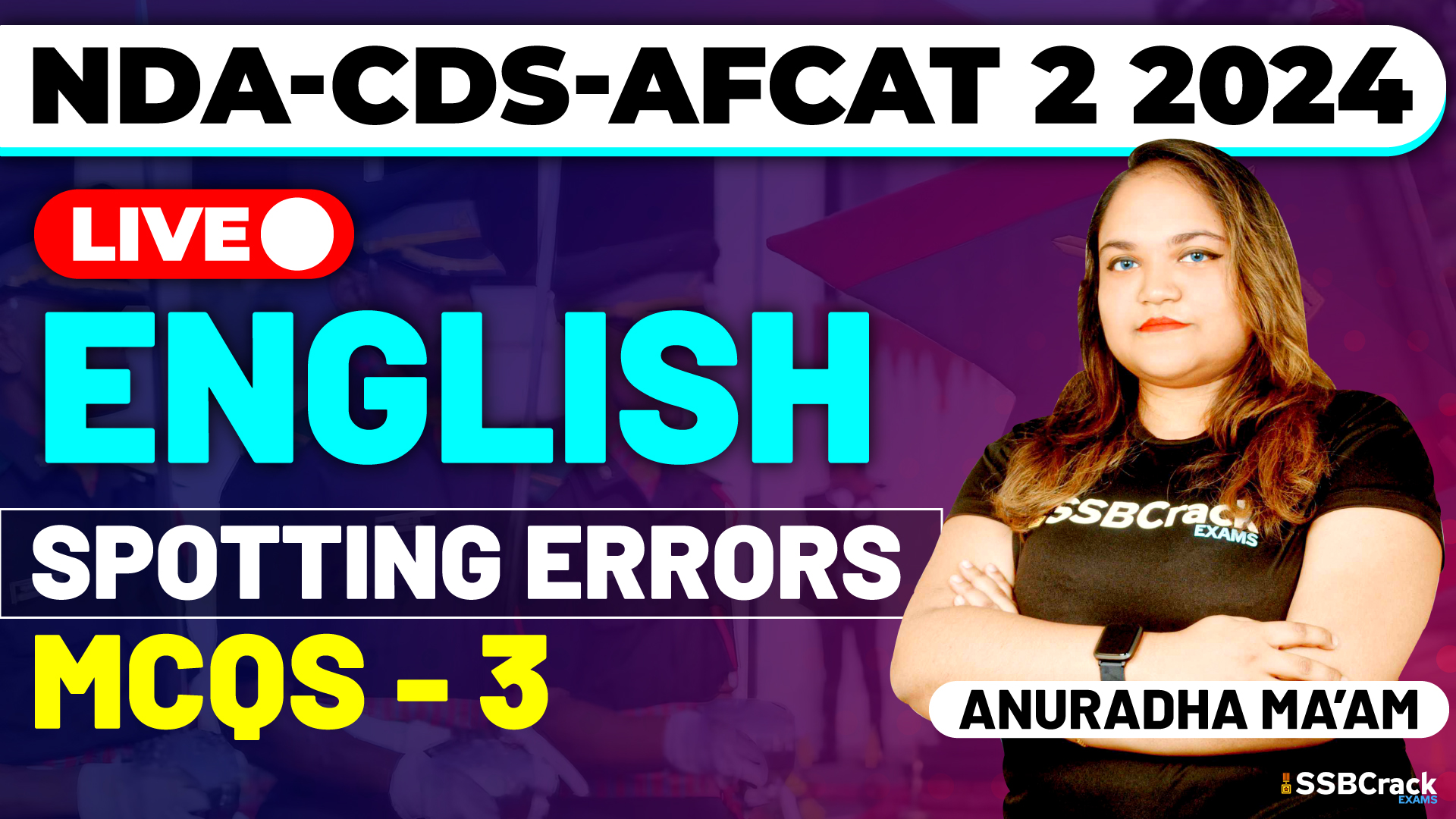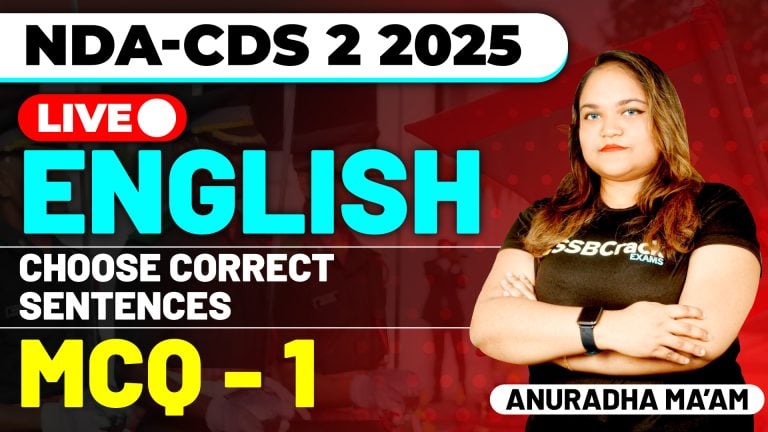Spotting errors is a fundamental aspect of the English sections in defence competitive exams such as NDA (National Defence Academy), CDS (Combined Defence Services), and AFCAT (Air Force Common Admission Test). These exams, pivotal for aspirants aiming to join the Indian Armed Forces, emphasize a high level of proficiency in English. Understanding the importance of spotting errors not only helps in cracking these exams but also enhances overall language skills, which are essential for effective communication in a military career.
Directions: Each item in this section has a sentence with three parts labelled as (a), (b) and (c). Read each sentence to find out whether there is any error in any underlined part and indicate your response on the Answer Sheet against the corresponding letter i.e., (a) or (b) or (c). If you find no error, your response should be indicated as (d).
Q) The news regarding (a)/ the earthquake survivors (b)/ are very disturbing. (c)/ No error (d)
Ans. (c)
Q) These equipments (a)/ must have (b)/ cost a fortune. (c)/ No error (d)
Ans. (a)
Q) His written statement (a)/ defers in several important respects (b)/ from his oral statement. (c)/ No error (d)
Ans. (b)
Q) I have ordered for (a)/ three cups (b)/ of coffee. (c)/ No error (d)
Ans. (a)
Q) One must not (a)/ boast of (b)/ one’s own success. (c)/ No error (d)
Ans. (d)
For more questions, check out NDA-CDS-AFCAT 2 2024 Exam English Live – Spotting Error MCQs – Class 3
Importance of Spotting Errors in Defence Exams
- Language Proficiency:
- Communication Skills: Officers in the armed forces must possess excellent communication skills. Spotting errors tests candidates’ ability to identify and correct grammatical mistakes, ensuring they can convey messages clearly and accurately.
- Professionalism: Correct use of English reflects professionalism and attention to detail, qualities imperative for military leadership and operations.
- Exam Scoring:
- High Weightage: The English section in NDA, CDS, and AFCAT has a significant weightage. Performing well in spotting errors can considerably boost overall scores.
- Time Efficiency: Error-spotting questions are usually quicker to answer compared to lengthy comprehension passages. Mastering this section can help candidates manage their exam time more effectively.
- Foundation for Other Sections:
- Reading Comprehension and Essay Writing: A strong grasp of grammar and syntax aids in understanding complex texts and crafting well-structured essays, both of which are crucial in these exams.
- Verbal Ability: Proficiency in spotting errors enhances verbal reasoning skills, helping candidates in interviews and group discussions during subsequent selection stages.
Common Types of Errors in Defence Exams
Candidates preparing for NDA, CDS, and AFCAT should focus on common grammatical errors, including:
- Subject-Verb Agreement:
- Ensuring the subject and verb in a sentence agree in number and person is a common focus area. For example, “She go to the market” should be corrected to “She goes to the market.”
- Tense Consistency:
- Maintaining the correct tense throughout a sentence is vital. For example, “He will go to the market and bought vegetables” should be corrected to “He will go to the market and buy vegetables.”
- Prepositions:
- Correct use of prepositions is essential. For example, “She is good in English” should be corrected to “She is good at English.”
- Articles:
- Proper use of definite and indefinite articles can be tricky. For example, “He is a best player” should be corrected to “He is the best player.”
- Pronouns:
- Ensuring pronouns agree with their antecedents in number and gender. For example, “Each of the boys must carry their own bag” should be corrected to “Each of the boys must carry his own bag.”
- Modifiers:
- Placing modifiers correctly to avoid ambiguity. For example, “She almost drove her kids to school every day” should be corrected to “She drove her kids to school almost every day.”
Strategies for Spotting Errors
- Understanding Grammar Rules:
- A solid understanding of basic grammar rules is imperative. Regular practice and revision can help in internalizing these rules.
- Reading Regularly:
- Reading newspapers, books, and articles can enhance understanding of proper sentence structures and usage.
- Practice with Mock Tests:
- Taking regular mock tests simulating the actual exam environment can help in improving speed and accuracy in spotting errors.
- Analyzing Mistakes:
- Reviewing and understanding mistakes made in practice sessions is crucial for improvement.
Conclusion
Spotting errors is a critical skill for candidates preparing for defence competitive exams like NDA, CDS, and AFCAT. Mastery of this skill not only improves exam performance but also equips candidates with essential language proficiency needed for a successful career in the armed forces. By focusing on common grammatical errors and employing effective preparation strategies, aspirants can enhance their chances of achieving their dreams of serving the nation with distinction.





















